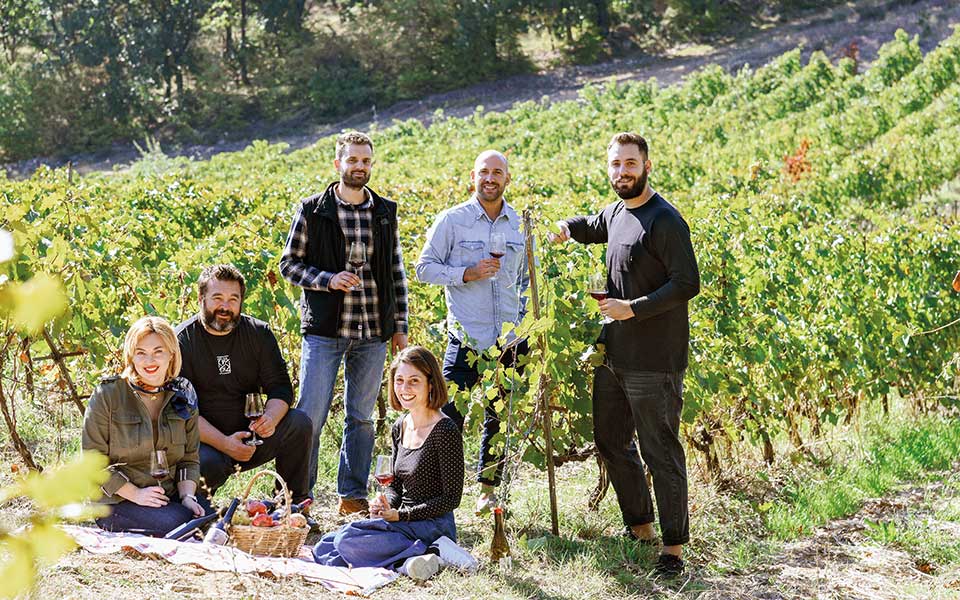Chloe Chatzivariti
A bridge between the old and the new
“My parents, Olga and Vangelis, started to make wine in 1984 without having studied oenology. A short while later, they had their own plantings. In 2005, they began building the winery and, in 2007, they had their first harvest,” says Chloe Chatzivariti, summarizing the history of the family business.
She admits that she stubbornly refused to commit to becoming a winemaker herself – something that caused tensions in the family – until she completed her degree in agricultural science at the University of Thessaloniki specializing in viticulture, and discovered an exciting incentive: the chance to travel, beginning with postgraduate studies in France.
After completing her postgraduate degree, she lived first in Montpellier, then Bordeaux, and then Lisbon, before returning to France to complete her work experience at the legendary Château Margaux. New Zealand, Argentina and Chile were the next pins on her global wine map, where she worked at big name wineries.
She returned to Filyria, in the wine region of Goumenissa where the family estate is located, in 2017. Chloe admits that she wasn’t impressed by the winemaking techniques she saw in the New World, but she did learn to manage large-scale production and, with the confidence which came with that, she began to work the family vineyards.
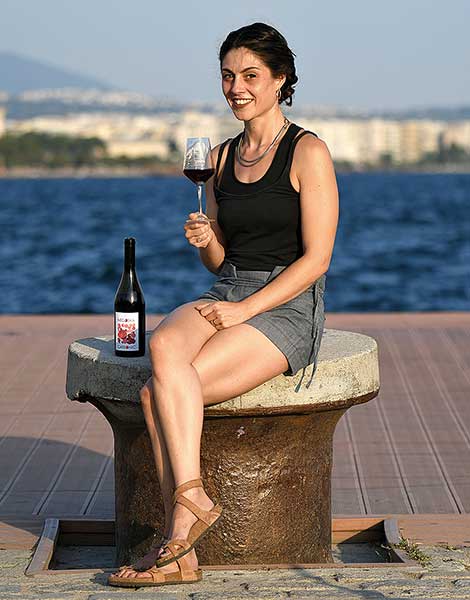
© Alexandros Avramidis
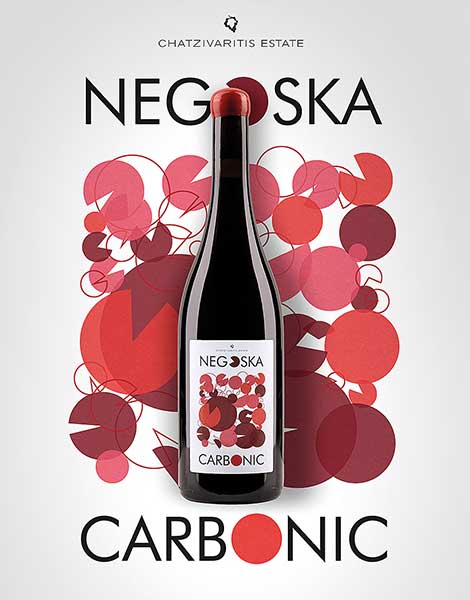
Chatzivariti favors low-intervention approaches. Four years ago, she started experimenting with natural yeasts and created the MiNiMus series, which includes Assyrtiko, Malagouzia and Roditis grapes fermented in clay pots, as well as a Xinomavro fermented in stainless steel tanks. She also produces two sparkling wines, and a Negoska (a local variety) using carbonic maceration, a technique for extracting more flavors from the grapes.
Her parents continue to produce seven labels, and their shared goal is to bring their two worlds closer, eventually making all their wines with natural yeasts, and to merge the natural and the commercial approaches. While her parents found their daughter’s opinions rather heretical in the beginning, the family now works together productively, and the bridge between the old and the new stands on sound foundations.
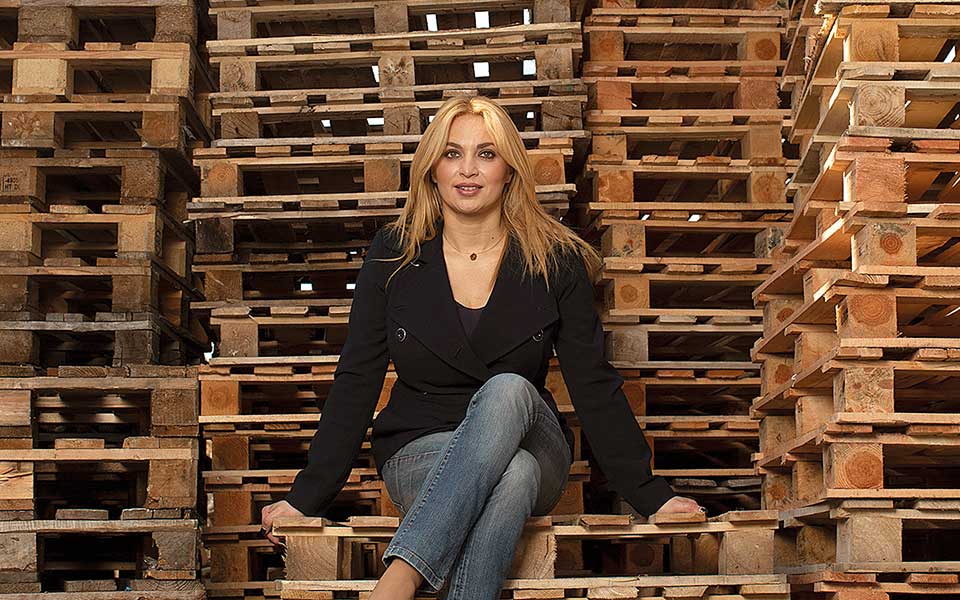
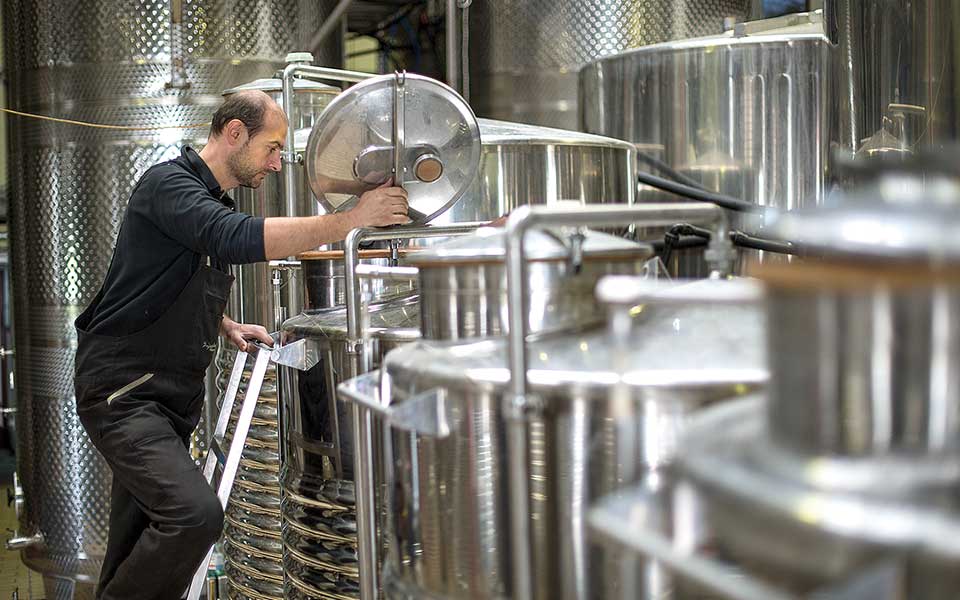
© Nicholas Economou
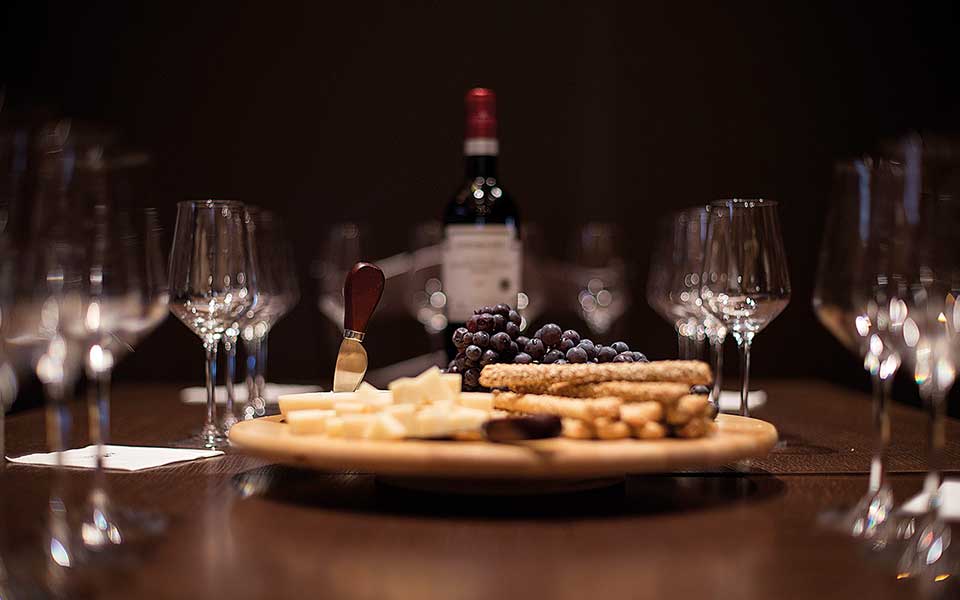
© Nicholas Economou
Eleni Kechri
Retsina from the past to the future
In 1993, Eleni Kechri, a chemical engineering student at the University of Thessaloniki and the eldest daughter of Stelios Kechris, began working in sales for the family business, a winery founded in 1939 which was not going through its best phase commercially. Eleni eventually decided to head to Bordeaux for postgraduate studies in winery management, and then continued her education with studies in oenology.
She returned with an urge to change what she could. She modified the style of winemaking based on what she’d been taught, changed the protocols for producing red wines, refreshed the company’s brand, and much more. At the heart of these changes was retsina, their signature product, which became the spearhead of the winery’s evolution.
Without entirely dismantling the family tradition, Eleni Kechri wove a legend around a variety which, until then, had not been approached with ambition or respect. She helped design a new bottle for Kechribari (their best-known label) and worked on promoting both the company and the retsina it produced, entering this wine for the first time in international competitions.
In 2006, she created “Tear of the Pine,” an elegant retsina made from Assyrtiko grapes; the production process combined tradition and technology to produce a selection with great ageing potential. “We created a vertical tasting for key people in the industry,” Kechri says. “A total of 100 tasters got to try older bottles of ‘Tear of the Pine,’ and they were impressed by a wine that they did not know could be aged, let alone be so charming.” She also took charge of planting the Goumenissa vineyard, the company’s first in-house vineyard, all while succeeding in increasing the winery’s revenues many times over during the course of the past almost three decades.
At present, Kechri is involved in two research programs on retsina in collaboration with the University of Thessaloniki. The company, meanwhile, currently produces a total of seven labels, four of which are different types of retsina. This year, the Kechribari label was awarded 93/100 by Decanter magazine, an exceptionally high score for such an accessible wine.
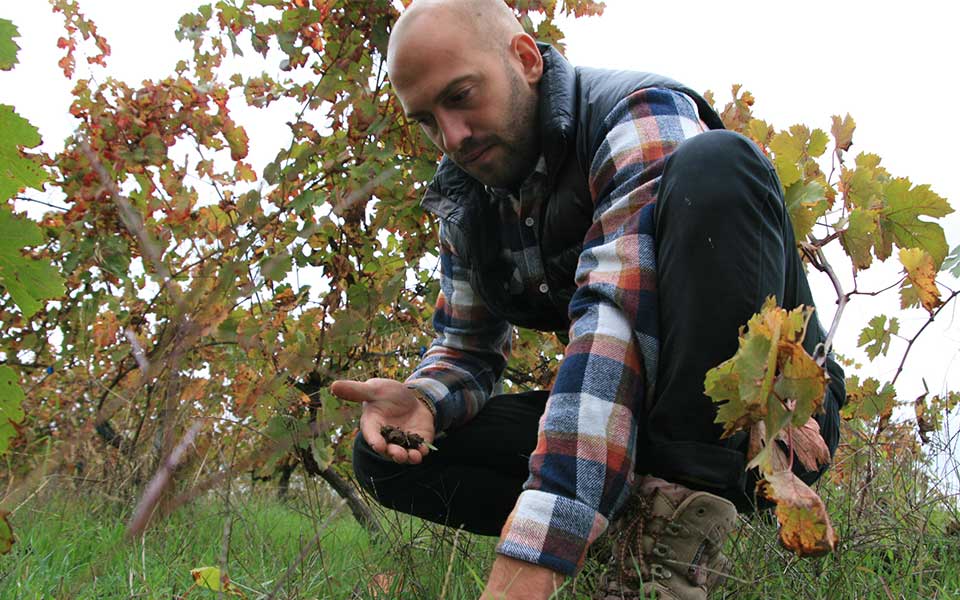
Jason Ligas
A ban on chemicals
It was back in 2009 when Jason Ligas officially produced his first wine, although he’d helped out in his father Thomas’ vineyards on Mt Païko since he was a teenager. Before that first bottle was filled, Ligas had studied oenology in Campagna and viticulture in Montpellier, then found himself in Paris where he became a wine merchant and sommelier. It was in that city that he was first introduced to haute cuisine, and became aware of the kind of wines he wanted to make.
He returned to Greece and became actively involved in vine cultivation, promoting permaculture and a biodynamic approach at the wineries with which he worked. He prefers the old cultivation methods over planting in rows, and prunes in the old style, forming a cup shape to better protect the vine. “We use no chemicals in the vineyards where I work; it is strictly forbidden,” he says.
Today, Ligas’ sister Melissanthi has taken over the running of the Ligas Estate in Pella while he focuses on promoting local grape varieties in Macedonia and beyond, working with a number of estates. His best-known wines come from vineyards on Samos where, for three years, he ran a pop-up winery.
At present, he’s working with the Giali Estate in Rapsani, where they use Xinomavro and two less well-known but important local varieties, Stavroto and Krasato. His wines can be found in many locations in France, and those who appreciate them talk about offerings that stir their emotions.
instagram: jason.ligas
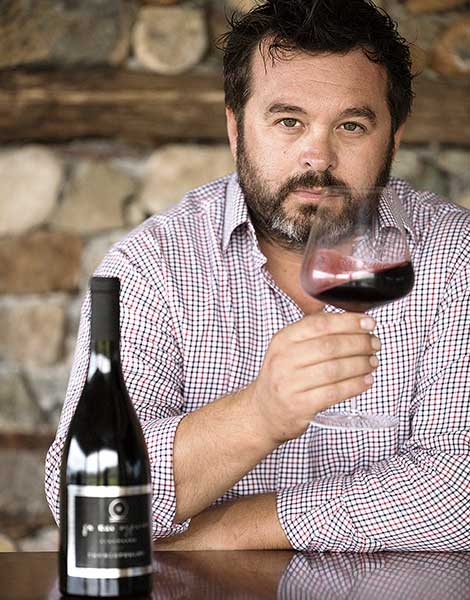
© Konstantinos Tsakalidis
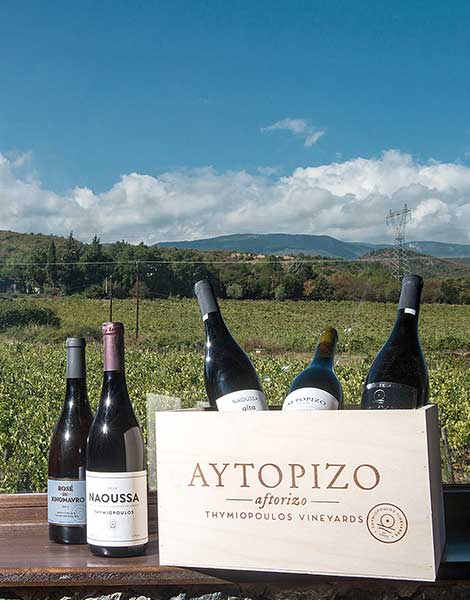
© Angelos Giotopoulos
Apostolos Thymiopoulos
The Xinomavro man
Apostolos Thymiopoulos went off to study oenology at university intending to work for one of the big wineries in his hometown of Naoussa rather than run his own business. At the time, his father had 4 hectares of vineyards, but sold all his grapes to local wineries, refusing to make his own wine. After graduating in 2002, Thymiopoulos changed his mind and decided to make wine from some of the family’s own grapes.
In the beginning, he experimented by producing small quantities. The first batch of his best-known label, “Earth and Heaven” (a name he came up with while still a student) was made from the 2003 harvest. Less than a year later, he found himself at a tasting in Germany organized by a Greek wine lover living in Stuttgart to introduce German sommeliers to wines by Greek producers.
As it turns out, it was an Italian, not a German, who bought Thymiopoulos’ entire 2003 vintage, and that Italian repeated the purchase the following year. A little later, the U.S. market opened to Thymiopoulos. One order brought the next. An English buyer tried his wine in the U.S., an Indian wine merchant tried it in England, and so on…
This wasn’t, of course, a matter of luck. Thymiopoulos’ wine stood out because he took a different approach to the cultivation of Xinomavro, Macedonia’s pre-eminent grape variety. It also helped that his winery is the only one in the southeastern part of the wine-growing region, and benefits from its own microclimate. He has vineyards at different elevations, too, which he cultivates organically; he uses wild yeasts; and he knows how to handle the temperamental Xinomavro, in part because it’s the only variety he cultivates. Without the distraction of other varieties, he harvests grapes with with radically different properties, which in turn imbue his wines with different characteristics.
In under two decades, he has succeeded in producing 500,000 bottles, incorporating grapes from other certified organic vineyards as well. He exports 92% of his production, shipping to more than 200 locations in France, to the UK, to Norway and Canada, and even to Japan. This year he’ll be releasing a 13-year-old rosé, a personal gamble that’s just one more expression of this magical variety developed by its greatest champion.
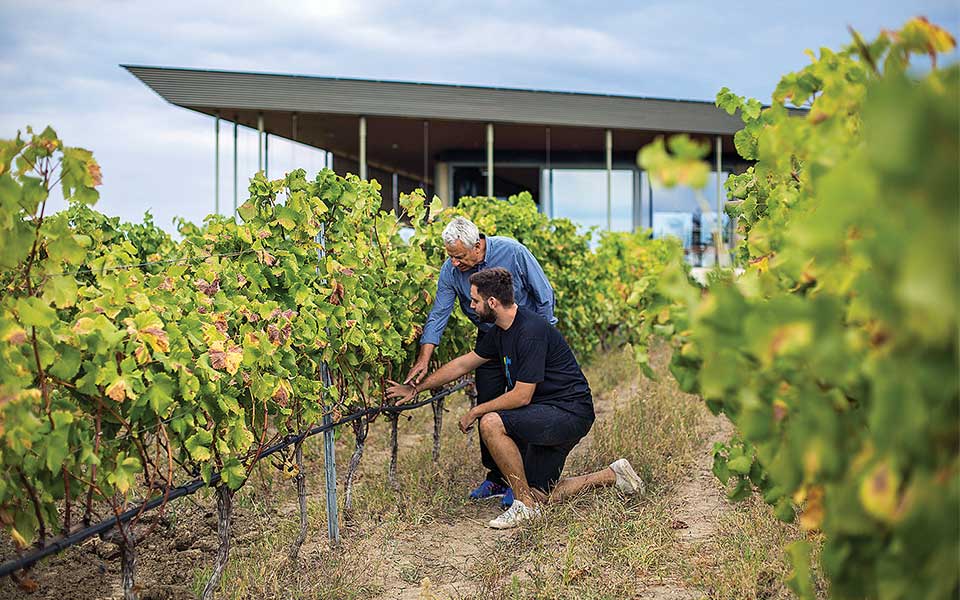
© Nicholas Economou
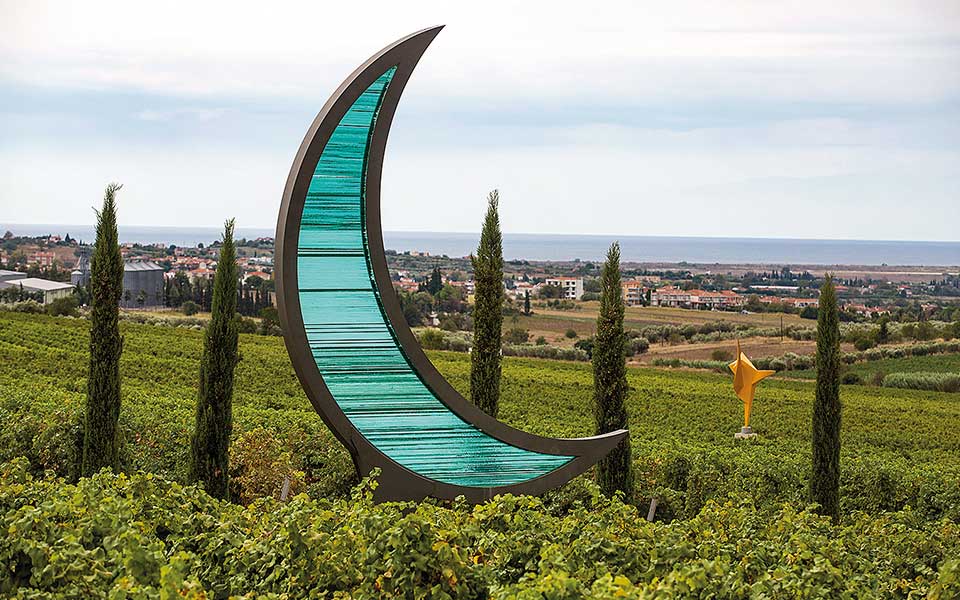
© Nicholas Economou
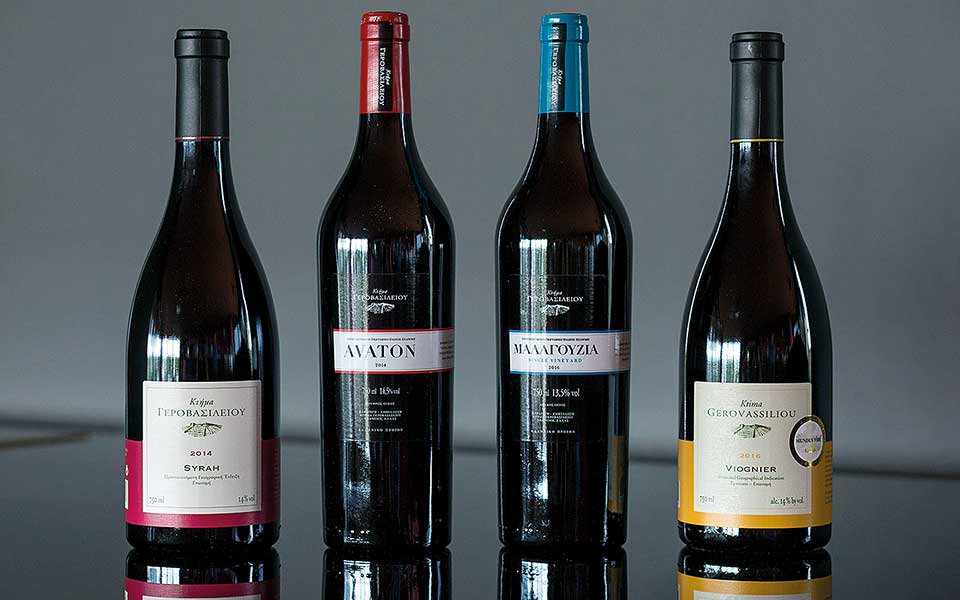
© Nicholas Economou
Argyris Gerovassiliou
The apple doesn’t fall far from the tree
The slopes of Epanomi were a familiar sight to Argyris Gerovassiliou, who spent his childhood at the family winery, although the first time he worked in an official capacity as a certified oenologist was only five harvests ago, counting time the way winemakers do. Gerovassiliou studied agricultural science at the University of Thessaloniki, specializing in viticulture, and, after completing his military service, left for Bordeaux to earn a diploma in oenology (DNO).
The same path had been trodden a few decades earlier by his father, Vangelis Gerovassiliou, the man behind a number of large winemaking projects. The vineyards of Vivlia Chora in Macedonia, Dyo Ipsi in the Peloponnese, Mikri Thera in Therasia and a new one in Goumenissa are shared between father and son, along with their close partner Vassilis Tsachtarlis.
Recently, the younger Gerovassiliou completed an MBA in winery management, in order to be able to speak the same language as his sisters, Marianthi and Vassiliki, who are also active in the family business.
In matters of management, Argyris feels that he has both the expertise and the latitude from his father to act where needed, although he also says that he is not a believer in drastic changes. Nonetheless, he has been able to eliminate those things he feels have been holding this renowned winery back, not fearing to deviate from the past to keep the wines current.
“We make less and less use of new barrels. We also steam-clean our barrels rather than char them, as I don’t want the barrel to impart a heavy flavor to the wine,” he cites as an example of a recent change. “These are all my wines, although in truth there is no ‘mine’ and ‘yours’. Winemaking is teamwork, and we work together to keep things going. If there were one radical thing I would do, it would be to cut down on the number of labels.”
Not to worry, however; the most famous Malagouzia in Greece will undoubtedly always be part of their cellar.
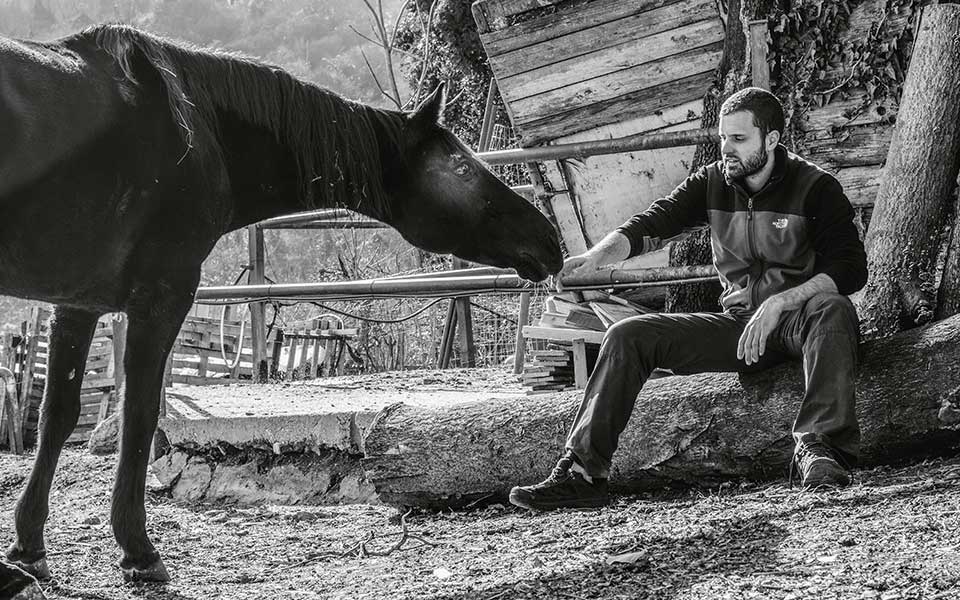
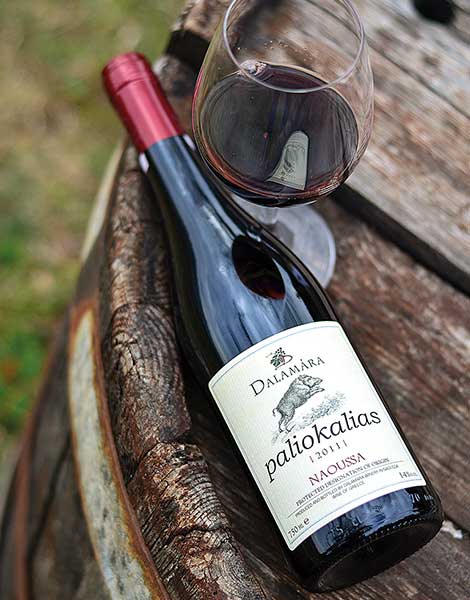
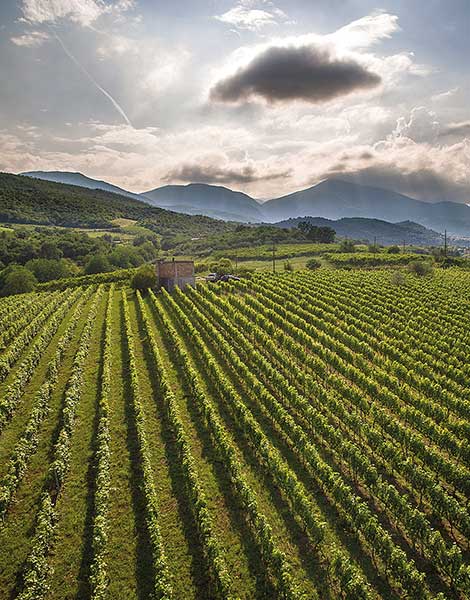
Kostis Dalamaras
Third-generation grape grower
“I’ve been saying I wanted to be a grape grower since I was a child, like my father and my grandfather,”says 34-year-old Kostis Dalamaras, who studied viticulture and oenology in Burgundy before returning to take charge of production at the family business. His father had been bottling wine since 1991, and the winery had been certified organic since 1996. During Kostis’ tenure, the varieties used have been cut from nine to just four – Assyrtiko, Xinomavro, Perknadi and Merlot – from which he produces six labels within the Naoussa PDO region.
Dalamaras, who is principally known for his work in the vineyard, recently completed a replanting. He’s a grower first, focusing on his raw material, and cultivates with minimal interventions. All the changes he has made to the family winery have been small, gradual, and with an emphasis on grape selection.
“I base my actions on our observations” he says. “My father had certain norms; he made wine every year in the same way. I doubled our experimentations and became more flexible, though always following in the steps of my predecessors.”
The time he spends in the vineyard is, Dalamaras maintains, of utmost importance. He doesn’t mind at all the adjustments to procedures that he has to make with every new harvest; he finds it exciting. He manages seven hectares in total, producing around 40,000-45,000 bottles, of which he exports around two-thirds.
“As a Xinomavro region, we’re obliged to support the variety with the quantities demanded by the markets. The Paliokalias harvest is sold six months before it comes to market,” he says, noting the appeal of his best-known label. Outside Greece, Kostis’ wines were made available at key locations, and were thus discovered by several distributors and exporters.
At present, his most significant partnership is with Master of Wines Mark Andrew, creator of the influential magazine Noble Rot and owner of the restaurant of the same name. Industry insiders say that whatever catches Andrew’s eye gets noticed by others, too, and they aren’t wrong. But for a wine to attract his attention, it must be something special, a wine of character that bears the mark of its winemaker.
Thankfully for Dalamaras, this is true for all of his labels, as his devotees in Germany, the US, Canada and Australia can attest.
This article first appeared in the print issue Greece Is Thessaloniki 2020 with the title “New Wine Makers on Old Vines”. The magazine, along with other past issues, is available for order at our eshop.

